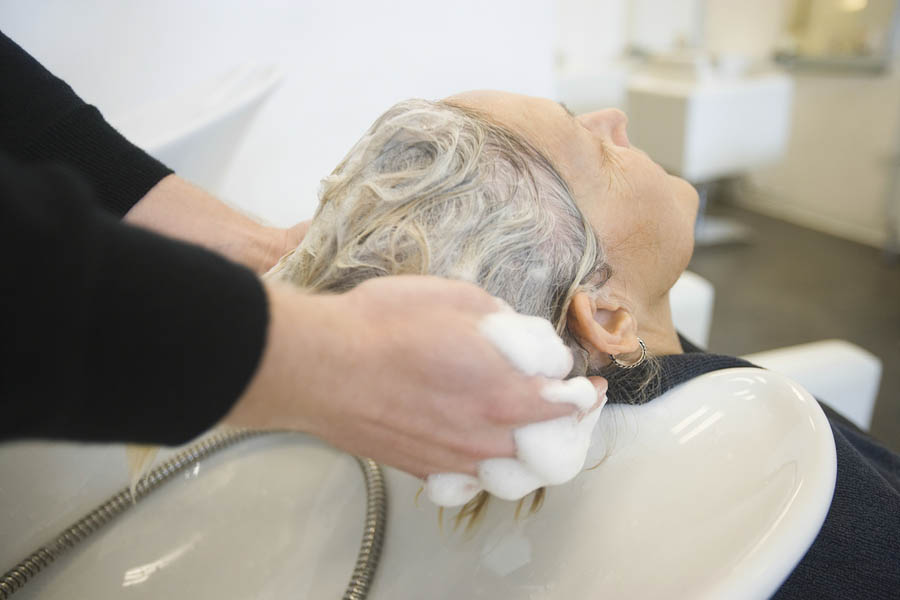Hair Washing for Elderly Adults

It’s not uncommon for older adults to need assistance washing their hair. And for those who have mobility limitations, it may be necessary to provide that assistance in a bed or wheelchair. But exactly how often should the elderly wash their hair, and what can be done to make sure everything goes as smoothly as possible?
How Often Should the Elderly Wash Hair?
While our hair does collect a bit of dirt each day, the biggest reason why hair needs to be washed regularly is oil. Glands on the scalp are constantly producing an oil called sebum to help moisturize your hair. As it’s produced, that oil slowly works its way from the scalp to the ends of your hair, where it continues to accumulate until washed.
However, with the many other changes that come with age, the scalps of older adults don’t produce as much sebum. Curly and coarse hair are also known to slow down the rate at which it spreads through hair. In short, that means there’s no single washing frequency that works best for everyone.
Generally speaking, older adults may only need to wash their hair around once per week. For seniors who are hesitant to wash with greater frequency, dry shampoos can be effective in the days between wet washing.
How to Wash an Elderly Person’s Hair
Learning how to wash an elderly person’s hair is largely about figuring out which of your options are the right tools for optimal support. In the least, you’ll usually want to prepare a few washcloths and towels, a cup for pouring warm water, some kind of washing basin, and the shampoo of your choice.
The type of washing basin you choose can also be important. For example, when washing the hair of someone in a wheelchair, a portable shampoo bowl can be invaluable. It’s essentially a sink bowl that’s attached to wheels, similar to the washing station you’ll find at most salons, which allows you to position the basin directly behind a person’s chair. Likewise, inflatable wash basins can be especially useful for washing the hair of bedridden patients.
And a little preparation can make washing hair in bed rather easy. To get started, you’ll want to line the bed with towels or garbage bags, to prevent it from becoming wet. After placing a washing basin on the bed, and gently assisting the senior’s head inside, you can begin to wet their hair with warm water. You may want to offer a dry washcloth to help prevent their eyes from being splashed.
Because larger amounts of shampoo can be difficult to remove, be sure to try the smallest effective amount. After several rinses, you can gently remove their head from the basin and begin helping them to towel-off.
Washing Hair with Care
When washing your own scalp, it’s not hard to use the right amount of pressure. But it can be more difficult when washing someone else’s hair, especially an elderly person with fragile skin. That can make it a good idea to wear disposable gloves to make hurting someone’s scalp less likely.
From hair washing trays to hair washing chairs for elderly people, there are all kinds of assistive devices out there. And there’s an equally wide variety of simple steps you can take to make someone a little more comfortable while washing their hair. These kinds of simple improvements may not seem critical, but making the washing experience as comfortable as possible can also help make regular hair washing for the elderly more likely in the future.
Subscribe
Date: 2019-12-12


